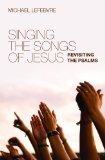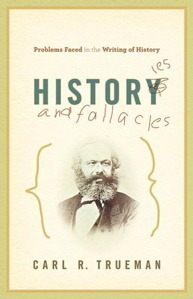Kevin DeYoung's Blog, page 187
February 9, 2011
The Four Indispensable Qualities of Good Preaching
I'm no expert in preaching. But I do it lot and I try to help young men get better at it. So while I may not be the world's best preacher or a seasoned homiletics instructor, I have given a good deal of thought into what makes good preaching good.
It seems to me there are four indispensable qualities of good preaching. You can have faithful preaching without all four, but truly good preaching–the kind that resonates with people and the kind God tends to employ to bless his people and convert sinners–will have these four attributes.
1. Veracity – This is the more crucial quality. Without this your preaching is not faithful. It may attract a crowd. It may win you applause. But it will not be good. Christian preaching must first of all be true–true to the text, true to the whole counsel of God, true in whatever else you say or cite. A seminary student or lay elder or new pastor may not be the most comfortable or the most gifted behind the pulpit, but so long as he says what is true and biblical, God can use that preaching.
2. Clarity – Truth is first, but if you say what is true but don't say it so people can understand you, it isn't worth much. Clarity means we pay attention to the structure, the flow, the pace, and the length of our sermons. Clarity doesn't mean the congregation must remember your three points, but they should know what the text was about and what you were trying to say. If your pastor is true and clear, rejoice! You have more than many congregations.
3. Authority – This quality is easily abused, but without it you are left with a fine sounding lecture. Remember, what surprised the crowds most about Jesus' teaching was that he spoke with authority (Matt. 7:28-29). Good preaching sounds forth with certainty, not because the preacher is infallible, but because God speaks through him, making claims on people's lives, declaring the truth with boldness, taking courageous stands where others cower in fear.
4. Authenticity – This is the hardest quality to describe and it takes the longest to acquire. I'm not usually a fan of the buzzword "authenticity," but I use it here as a blanket to cover a number of ideas. Does your unique personality come through in preaching? Are you comfortable in your own skin? Do you have a connection with the congregation? Does your preaching sound like someone talking about the gospel or calling people to believe the gospel? Are you an advocate for Christ or a witness to Christ? Is there, to use John Murray's phrase, personal, passionate, pleading in your preaching? This is what I mean by authenticity.
These four qualities are indispensable to good preaching, but some are more indispensable than others. The farther you go down the list, the harder the traits come. But the good news is it's the top of the list that matter most. Veracity is a non-negotiable. After that, work hard at clarity. Then pray for Spirit-anointed authority. And finally, stick with preaching for at least five years and you'll start to grow in authenticity.
February 8, 2011
Tradition Still Requires Interpretation
One of the common Catholic objections to the Protestant doctrine of sola scriptura is that without the Church to offer authoritative interpretations we are all just left with our own personal readings of Scripture. So, the argument goes, evangelicals may talk a big game about the Bible being our ultimate authority, but actually the final authority rests with each individual interpretation of Scripture. In light of this chaotic free-for-all, consider how much better is the Catholic understanding of authoritative Tradition with a capital T.
There are a number of ways an evangelical could respond to this argument.
1. Illumination. We believe the Spirit opens the eyes of his people so that spiritual things can be spiritually discerned (1 Cor. 2:6-16). This illumination is not limited to church councils.
2. Perspictuity. We believe that the main things of the Bible–sin, salvation, Christ, man, God, faith–can be clearly understood. Our God speaks and knows how to speak. Jesus and the apostles quoted Scripture all the time as if they believed there was a meaning in the text that they could understand and others ought to have understood as well.
3. History. At our best, evangelicals do not confuse sola scriptura with solo scriptura, the latter entailing a complete rejection of theological tradition. Creeds and confessions matter. The historic Christian faith matters. All councils, catechisms, and theologians are fallible, but this doesn't mean we ignore the communion of the saints that have gone before. Biblical interpretation must be informed by and rooted in tradition, just not controlled by it.
Those three points could be elaborated for a thousand pages, but I want to focus on one other response to the Catholic argument against sola scriptura.
Interpretations Need Not Apply?
I respect Catholic theology for its intellectual history, its commitment to doctrinal precision, and for the many places it promotes historic orthodoxy. But I do not see how an appeal to authoritative church tradition, in its practical outworking, makes the interpretation of Scripture any more settled. In my experience, what it does is push the boundaries of the debate away from Scripture out to papal encyclicals and the like. This is fine to do as a means for establishing what Catholics have believed about Christian doctrine (much like I don't think it's a waste of time for Presbyterians to discuss the Westminster Confession of Faith). But here's my point: just because you have an authoritative tradition doesn't mean you won't argue over the interpretation of that tradition.
For example, take the immigration debate. How should Christians view the ethics of immigration? Two evangelicals might both turn to the Bible and come up with a difference response. I'm not saying one answer wouldn't be more right than the other (we're not relativists or hard postmodernists when it comes to texts), but they could very well disagree even though they both adhere to sola scriptura. So do Catholics have an easier time giving a definitive answer? Clearly not.
In May 2008, First Things printed an exchange between two Catholics on the issue of immigration. This was how the "conservative" author began (three paragraphs in):
Is there a Christian answer to these urgent question? For Catholics at least, there are relevant teachings in the Catechism: (1) The "more prosperous nations are obliged, to the extent they are able," to welcome foreigners in search of security or a livelihood; (2) there should be not "unjust discrimination" in employment against immigrants, and (3) the immigrants themselves should "obey" the receiving country's laws. (40)
The author on the "left" also began with an appeal to Catholic Social Teaching:
Deriving its understanding from revelation and reason, the Catholic Church teaches (1) that persons have right to emigrate in search of a better life when poverty, hunger, unemployment, unrest, and similar factors greatly hinder human flourishing; (2) that states have a right to limit immigration when the common good of society requires it in due consideration of such factors as national security and the domestic economy, but not out of inconvenience, selfishness, or minor cost; and (3) that "more prosperous nations are obliged, to the extent they are able, to welcome the foreigner in search of the security and the means of livelihood which he cannot find in his country of origin," as the Catechism puts it. (44)
Both authors are obviously working with the same material, and both quote the part about prosperous nations being obliged to welcome immigrants. But you can already see they are going in different directions. The first author's third point highlights the need for immigrants to obey the laws of the land, while the second author's second point goes out of the way to say that nations cannot refuse immigrants out of selfishness. Same tradition, but still a debate.
Interestingly, both authors go on to interact with various Cardinals and Bishops, but neither quotes from Scripture. This doesn't mean their arguments can't be scriptural, it is simply to make the point that the debate centers on interpretations of interpretations.
A Tangled Mess Too
This leads to one last thought. Just because Protestants have a bazillion denominations and Catholics have, well, the Catholic Church, doesn't mean that the Catholic Church is any less a mishmash of traditions. They have under a more formal unity just as many competing ideologies and theologies.
For example, here's Russell Hittinger, Professor of Catholic Studies at the University of Tulsa, writing about the thought of Thomas Aquinas:
The past century and a half of papal teaching on modern times often seems like a tangle: any number of different strands–theology, Thomistic philosophy, social theory, economics–all snarled together. And yet a little historical analysis may help loosen the know. In fact, a careful reading of papal documents reveals one of the main causes of the tangle. Throughout Catholic thought over the past hundred and fifty years, they have run two quite different uses of Thomism–a combination of four threads weaving in and out of the Catholic Church's response to the strangeness of modern times. (First Things June/July 2008, 33)
Later, as a case in point, Hittenger explains (in a sentence that will make sense to few Protestants):
The affirmations to be negated in Pius IX's 1864 Syllabus became affirmation to be affirmed in Leo XIII's famous 1892 encyclical Rerum Novarum–positive statements on Catholic teaching on modern social and political issues. (35)
In the end, the best arguments of sola scriptura come from the way Scripture views Scripture. I recognize I haven't done much of that here. But clearing away counter-arguments is important too. And one of the most common is the charge that Protestantism got rid of one infallible Pope, just to put a million little popes in his place. Makes a good evangelical wince a little, doesn't it? But before you take a step or two in the direction of Rome, remember that even one Pope has a million interpreters.
February 7, 2011
Monday Morning Humor
This clip was sent to me by my father-in-law, Roy Bebee. It's cute (in a destructive sort of way).
And in honor of my father-in-law, who is a big OU fan, why don't you see if you can memorize all the words to the Oklahoma fight song. The lyrics are deep and moving (and for some reason the "o's" look like lower case sigmas).
Next 2011
Here's my annual plug for a conference I love: Think about going to Next 2011 . I love this conference. The people are fun, humble, encouraging, eager to learn, and eager to serve (just like C.J., Josh, Bob, and everyone else I've met from Sovereign Grace).
The conference will be in Orlando over Memorial Day weekend (May 28-31, 2011) and will consider the question, "How does Christ transform the way I look at the world?" (Abraham Kuyper's quote sets the context: "There is not a square inch in the whole domain of our human existence over which Christ, who is Sovereign over all, does not cry: 'Mine!'").
General Session speakers and topics:
Jeff Purswell: God on the World: The Bible's Framework for a Christian Worldview
Scott Oliphint: Think or Believe? The Role of Reason in the Life of Faith
D.A. Carson: The Gospel and the Postmodern Mind
R.C. Sproul: The Reality of Truth in a World of Relativism
Kevin DeYoung: Who Am I? Humanity in the Eyes of the World and the Christian
Additionally there will be breakouts:
Vern Poythress on Science and Faith
Nathan Sasser on The New Atheists
Peter Williams on Can We Trust Our Bibles?
Kevin DeYoung on Jesus and Other Religions
In addition, there will be vocational breakouts from Christians in the fields of science, journalism, government, business, law, arts, medicine, and pastoral ministry
Worship will be led by Bob Kauflin, assisted by the Na Band, Generation Letter, and special guest Shane & Shane.
Register here.
February 5, 2011
Become What You are Becoming
Doug Moo, commenting on Romans 6:1-14 and the exhortation to "become what you are becoming."
Balance on this point is essential. "Indicative" and "imperative" must be neither divided nor confused. If divided, with "justification" and "sanctification" put into separate compartments, we can forget that true holiness of life comes only as the outworking and realization of the life of Christ in us. This leads to a "moralism" or "legalism" in which the believer "goes it on his own," thinking that holiness will be attained through sheer effort, or ever more elaborate programs, or ever-increasing numbers of rules. But if indicative and imperative are confused, with "justification" and "sanctification" collapsed together into one, we can neglect the fact that the outworking of the life of Christ in us is made our responsibility. This neglect leads to an unconcern with holiness of life, or to a "God-does-it-all" attitude in which the believer in which the believer thinks to become holy through a kind of spiritual osmosis.
Paul makes it clear, by the sequence in this paragraph, that we can live a holy life only as we appropriate the benefits of our union with Christ. But he also makes it clear, because there is a sequence, that living the holy life is distinct from (but not separate from) what we have attained by our union with Christ and that holiness of life can be stifled if we fail continually to appropriate and put to work the new life God has given us. Jeremiah Bourroughs, a seventeenth-century Puritan, put it like this: "…from him [Christ] as from a fountain, sanctification flows into the souls of the Saints: their sanctification comes not so much from their struggling, and endeavors, and vows, and resolutions, as it comes flowing to them from their union with him." (The Epistle to the Romans, 391)
February 4, 2011
Do You Think I Could Be a Writer?
How to Write a Sentence by Stanley Fish begins with this striking anecdote:
In her book The Writing Life (1989), Annie Dillard tells the story of a fellow writer who was asked by a student, "Do you think I could be a writer?" "Well," the writer said, "do you like sentences?"
How true. The difference between enjoying writing and enjoying having written is whether or not you like sentences.
There are a plenty of good books written by bad writers, and many more by smart, godly people who have something to say but don't enjoy the process of saying it on paper. Conversely, I would guess that those who delight in writing not only feel passionately about their subjects and want to teach others what they've learned, they also like sentences. They like to play with words. They like experimenting with rhythm and syntax. They like reading sentences they make you say, "Wow, how did they do that?"
That simple question "Do you like sentences" is wise for writing and beyond. Don't sit down to write the great American novel if you don't like sentences. In the same way, don't sign up to be an elementary school teacher if you don't like kids. Don't set out to be an amazing counselor if you don't like questions, if you aren't curious about people and love to hear their stories. Don't dream of being a concert pianist if you don't take some delight in scales. With these professions and a hundred others we need to push past the grandiose aspirations and romantic feel and consider if we actually like the nitty-gritty work required to be a success.
February 3, 2011
The Difference a Few Time Zones Can Make
My wife and I were in Southern California Monday-Wednesday while I was speaking at The Masters College. We could not have been treated better. We were very impressed with the spiritual atmosphere, the hospitality, and the weather!
Things looked like this (at the beach a short drive up the coast):
We arrived back at home in Michigan early this morning. This is the way things look a few time zones away:
Actually, both look pretty good I'd say. One is warmer, but the other has a different kind of warmth.
Ah, pure Michigan.
Something We Can All Agree On
Why can't all the professing Christians in the world look past their differences and just get along?
Because some of those differences are irreconcilable. Most significantly and most foundationally, the three main branches of Christianity in this country–Roman Catholic, Liberal Protestant, and Evangelical Protestant–do not agree on the locus of authority. We don't answer the question, "What is our final authority?" in the same way.
Every Christian acknowledges that in some sense our theology and ethics must "accord with Scripture." But whether that means "Scripture along with Church Tradition" or "Scripture as redefined through personal experience" or "Scripture alone" is what separates us. And as long as we disagree on this matter of authority, we should not expect genuine spiritual unity among the three groups. There can be no unity where there is no agreed upon authority.
Let me show you what I mean.
Peter Kreeft (Roman Catholic):
Most Protestants reject all Catholic doctrines they cannot find explicitly in Scripture–for example, Mary's Assumption into heaven–because they believe sola scriptura: that Scripture alone is the infallible authority. This is the fundamental reason behind all the differences between Protestant and Catholic theology. (Catholic Christianity, 20).
Gary Dorrien (Liberal Protestant):
The essential idea of liberal theology is that all claims to truth, in theology as in other disciplines, must be made on the basis of reason and experience, not by appeal to external authority. Christian scripture may be recognized as spiritually authoritative within Christian experience, but its word does not settle or establish truth claims about matters of fact. (The Making of American Liberal Theology: Idealism, Realism, and Modernity, 1900-1950, 1)
Michael Horton (Evangelical Protestant):
Ultimate authority always resides outside the self and even outside the church, as both are always hearers of the Word and receivers of its judgment and justification. The church is commissioned to deliver this Word (a ministerial office), not to possess or rule it (a magisterial office). Thus, the authority is always transcendent. Even when it comes near us, it is never our own word that we hear (Ro. 10:6-13, 17). (The Christian Faith, 194)
So it seems that whatever else we may disagree on as Catholics, Liberals, and Evangelicals, we should at least agree that it is our view of Scripture and authority that divides us.
February 2, 2011
A Phrase to Retire
I first heard the line from a pastor friend that I like and respect very much. I thought the phrase was catchy, in your face, and made a good point so I repeated it several times. Soon I noticed others, hearing it from me, starting doing the same.
But before too long I began to question the wisdom of those words. In fact, it really only took a few minutes of sustained reflection (after using the phrase for a few months) to realize that the line, though loaded with good intent, was lopsided and biblically untenable. The line is one that pastors like to use to startle their congregations out of their holy huddles. It goes like this: "Church is not for you."
On our best days, here's what pastors are trying to say: "Don't just think about yourself. Don't get comfortable here because you have your friends and your programs. Think about the people who aren't here yet. Think about our neighbors who need to hear the gospel. Let's be willing to make some sacrifices for the sake of the lost. Let's forgo some of our preferences and some of our ease so that new people can find a home here. We have salvation. We have a church family. We know Jesus Christ and have the hope of eternal life. Out there they have hell and are without God in the world. Let's not be an ingrown church when there are so many lost people outside these walls."
That's what I meant to say by the line "Church is not for you." I'm sure that's what my friend meant as well (though some people may mean worse things). But as much as pastors may want to emphasize evangelism and outreach, telling the congregation "Church is not for you" is the wrong way to go about it.
One of God's great gifts to the Christian is the church. It is for us, because God is for us too. The worship, though ultimately for God, is meant for our edification–for believers' edification, not immediate resonance with nonbelievers (though we want our services to be intelligible to them too). Just as important, think of the one another commands. Church should be a place to bear each others burdens, meet physical needs, express comfort, demonstrate care, exercise hospitality, exchange greetings, offer encouragement, administer rebuke, receive forgiveness–basically faith working itself out in love. And isn't love for each other the distinguishing mark of the Christian community?
One other thing: don't forget that the Great Commission calls us to make disciples not make decisions. I am all in favor of decisions for Christ (rightly conceived), but the church's aim is not simply for conversions. Jesus told the disciples (and by extension the church I believe) that their commission was to teach the nations to obey all that he had commanded. We must grow up in Christ as much as we must come to Christ. So Sunday school is not a distraction from mission. Small group Bible studies (again, done well) are not some lame expression of bubble Christianity that take us away from the real purposes of the church. Sermons, even the kind that go into disputed areas of theology or highlight doctrinal distinctives, do not have to be exercises in stuffing fat Christians full of more knowledge while the world perishes without Christ. Theology is not the enemy of conversion and wanting church life to be a blessing is not what's wrong with the world.
Amen to evangelism. Amen to services that recognize the presence of non-Christians. Amen to poking long-time believers to serve in ways besides the reading of books. But boo-hoo to chiding church members for wanting a church that loves them, teaches them, and watches over their souls. The phrase sounds prophetic and I understand the good intentions, but there is simply no biblical warrant for saying to God's people "church is not for you." Better to say ala the Apostle Peter: "Church is for you, and for your children, and for all who are far off, as many as the Lord our God calls to himself."
February 1, 2011
January Book Briefs
A week off + short books + a couple flights = a longer than usual list of books for the month.
 Orlando Saer. Iron Sharpens Iron: Leading Bible Oriented Small Groups that Thrive (Christian Focus 2010). Kent Hughes says this is "the best book of its kind I have ever read." I agree. If your church wants Bible-oriented small groups this is the wisest, most practical, most helpful book I know. It's short and easy to read too. Only negative: some clumsy formatting, layout, and clip art decisions.
Orlando Saer. Iron Sharpens Iron: Leading Bible Oriented Small Groups that Thrive (Christian Focus 2010). Kent Hughes says this is "the best book of its kind I have ever read." I agree. If your church wants Bible-oriented small groups this is the wisest, most practical, most helpful book I know. It's short and easy to read too. Only negative: some clumsy formatting, layout, and clip art decisions.
 Michael Lefebvre. Singing the Songs of Jesus: Revisiting the Psalms (Christian Focus 2010). I've said before that the lack of Psalm singing in the American church is a great shame. So I'm thankful for books like this that call us to revisit the "songs of Jesus." Still, I was not convinced by the main theses that we don't sing to Jesus we sing with Jesus as our song leader. The author leads a Psalms-only congregation. While Lefebvre doesn't advocate for exclusive Psalmody, his dislike for much of traditional hymnody (e.g., Isaac Watts) does shine through at times.
Michael Lefebvre. Singing the Songs of Jesus: Revisiting the Psalms (Christian Focus 2010). I've said before that the lack of Psalm singing in the American church is a great shame. So I'm thankful for books like this that call us to revisit the "songs of Jesus." Still, I was not convinced by the main theses that we don't sing to Jesus we sing with Jesus as our song leader. The author leads a Psalms-only congregation. While Lefebvre doesn't advocate for exclusive Psalmody, his dislike for much of traditional hymnody (e.g., Isaac Watts) does shine through at times.
 Eric Russ. Discipleship Defined (Xulon 2010). Eric, lead pastor of Mack Avenue Community Church, is a friend of mine doing an exciting, faithful, hard work in inner city Detroit. He has a heart for intentional discipleship (and is very good at it). This short book gives one good way how you can do it too.
Eric Russ. Discipleship Defined (Xulon 2010). Eric, lead pastor of Mack Avenue Community Church, is a friend of mine doing an exciting, faithful, hard work in inner city Detroit. He has a heart for intentional discipleship (and is very good at it). This short book gives one good way how you can do it too.
 Jerry Bridges. The Pursuit of Holiness (NavPress 2006 [1978]). A brief, readable, convicting, wise, gospel-saturated look at personal holiness. This would be a great one for your church book table or a small group.
Jerry Bridges. The Pursuit of Holiness (NavPress 2006 [1978]). A brief, readable, convicting, wise, gospel-saturated look at personal holiness. This would be a great one for your church book table or a small group.
 David Peterson. Possessed by God: A New Testament theology of sanctification and holiness (IVP 1995). I've liked every book in Carson's New Studies in Biblical Theology (NSBT) series. This one is no exception. This scholarly work is a good complement to something written at a popular level like The Pursuit of Holiness. Peterson is especially strong in emphasizing our positional sanctification.
David Peterson. Possessed by God: A New Testament theology of sanctification and holiness (IVP 1995). I've liked every book in Carson's New Studies in Biblical Theology (NSBT) series. This one is no exception. This scholarly work is a good complement to something written at a popular level like The Pursuit of Holiness. Peterson is especially strong in emphasizing our positional sanctification.
 Carl Trueman. Histories and Fallacies: Problems Faced in the Writing of History (Crossway 2010). I've yet to read anything by Trueman that is dull. This book in historiography puts that thesis to the test, but Trueman still rises to the challenge. If you want to know more about Holocaust Denial, Marxism, Calvin and Calvinism, and what all this has to do with writing history, Trueman will scratch your itch. The best chapter is the one on "A Fistful of Fallacies." A good book on an important, if little discussed, problem.
Carl Trueman. Histories and Fallacies: Problems Faced in the Writing of History (Crossway 2010). I've yet to read anything by Trueman that is dull. This book in historiography puts that thesis to the test, but Trueman still rises to the challenge. If you want to know more about Holocaust Denial, Marxism, Calvin and Calvinism, and what all this has to do with writing history, Trueman will scratch your itch. The best chapter is the one on "A Fistful of Fallacies." A good book on an important, if little discussed, problem.
[image error]Josh Moody. No Other Gospel: 31 Reasons from Galatians Why Justification by Faith Alone is the Only Gospel (Crossway 2011). Josh is the senior pastor of College Church in Wheaton with a PhD from Cambridge. He's worth listening to and so is this book. My blurb: "These expositions are clear, well-organized, exegetically careful, and theologically faithful. They're also filled with good illustrations, personal application, and a proper dose of British wit. These qualities make for very good preaching and a very good book."
 J. Todd Billings. Calvin, Participation, and the Gift: The Activity of Believers in Union with Christ (Oxford University Press 2007). As a reworked dissertation, this book is not for the faint of heart. The discussion of Milbank's theology of "Gift" was not particularly interesting to me (given my ignorance on the subject). But I was glad to see Billings dig deeply into Calvin's doctrine of union with Christ. Billings does a good job of introducing Calvin's doctrine of participation without mitigating at all (as some Calvin scholars do) the strong forensic elements in Calvin's theology. An important work for scholars in the field of Calvin studies.
J. Todd Billings. Calvin, Participation, and the Gift: The Activity of Believers in Union with Christ (Oxford University Press 2007). As a reworked dissertation, this book is not for the faint of heart. The discussion of Milbank's theology of "Gift" was not particularly interesting to me (given my ignorance on the subject). But I was glad to see Billings dig deeply into Calvin's doctrine of union with Christ. Billings does a good job of introducing Calvin's doctrine of participation without mitigating at all (as some Calvin scholars do) the strong forensic elements in Calvin's theology. An important work for scholars in the field of Calvin studies.





